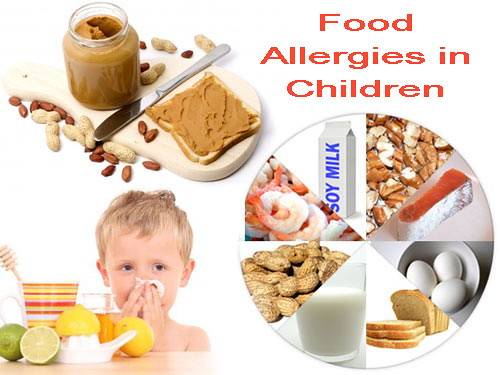Introduction:
Food allergies are increasingly prevalent, affecting millions of people worldwide. An allergic reaction to certain foods can range from mild symptoms like itching or hives to severe, life-threatening reactions such as anaphylaxis. Understanding common food allergens, recognizing the signs of an allergic reaction, and adhering to dietary restrictions are essential for individuals with food allergies. In this blog post, we will explore some of the most common food allergens and discuss the importance of dietary restrictions in managing food allergies.
Common Food Allergens:
Peanuts:
Peanut allergies are one of the most well-known and potentially severe food allergies. Even trace amounts of peanuts can trigger an allergic reaction in susceptible individuals. It's important to carefully read food labels and avoid foods that may contain peanuts or peanut derivatives.
Tree Nuts:
Tree nuts, such as almonds, walnuts, cashews, and pistachios, can also cause allergic reactions. Individuals with a tree nut allergy should be cautious of cross-contamination and avoid consuming foods that may contain tree nuts or their byproducts.
Milk:
Milk allergies are more common in children but can affect individuals of all ages. Allergy to cow's milk protein can cause digestive issues, skin rashes, or respiratory symptoms. People with milk allergies must avoid dairy products, including milk, cheese, yogurt, and butter, and look for suitable alternatives.
Eggs:
Egg allergies primarily affect children and are usually outgrown by adulthood. However, for those with persistent egg allergies, avoiding eggs and egg-containing products is essential. This includes baked goods, sauces, and processed foods that may contain eggs as an ingredient.
Fish and Shellfish:
Fish and shellfish allergies can cause severe reactions. Individuals with these allergies need to be vigilant about avoiding fish and shellfish products, both in their whole form and as ingredients in processed foods.
Wheat:
Wheat allergy is different from gluten intolerance or celiac disease. People with a wheat allergy may experience symptoms such as hives, digestive issues, or even anaphylaxis. Avoiding wheat and wheat-based products like bread, pasta, and cereals is crucial.
Soy:
Soy allergy is relatively common, especially among infants and young children. Soy can be found in numerous food products, including soy milk, tofu, edamame, and soy-based sauces. Careful label reading is necessary to avoid soy and soy derivatives.
Managing Food Allergies with Dietary Restrictions:
Read Labels:
When you have a food allergy, reading labels becomes an essential habit. Learn to identify potential allergens on ingredient lists and be aware of cross-contamination risks in food processing.
Communication:
Informing family, friends, and restaurant staff about your food allergies is vital. Clear communication can help ensure that your meals are prepared safely and that you avoid accidental exposure to allergens.
Alternative Ingredients:
Fortunately, there are numerous alternatives available for common allergenic foods. For example, individuals with dairy allergies can opt for plant-based milk, cheese, and yogurt substitutes made from soy, almond, or oat.
Meal Planning and Preparation:
Preparing meals at home allows you to have complete control over ingredients and reduce the risk of accidental allergen exposure. Plan your meals in advance and consider carrying safe snacks when dining out or traveling.
Allergy Emergency Plan:
For individuals with severe food allergies, it's essential to have an allergy emergency plan in place. This may involve carrying an epinephrine auto-injector (such as an EpiPen) and knowing when and how to use it. Consult your healthcare provider for personalized guidance.
Conclusion:
Food allergies require careful management and adherence to dietary restrictions. By familiarizing yourself with common food allergens, understanding label reading, and maintaining open communication, you can minimize the risk of exposure to allergens and mitigate potential allergic reactions. If you suspect a food allergy or experience symptoms after consuming certain foods, consult an allergist for an accurate diagnosis and personalized guidance on managing your food allergies. Remember, with proper precautions, individuals with food allergies can lead healthy and fulfilling lives.
